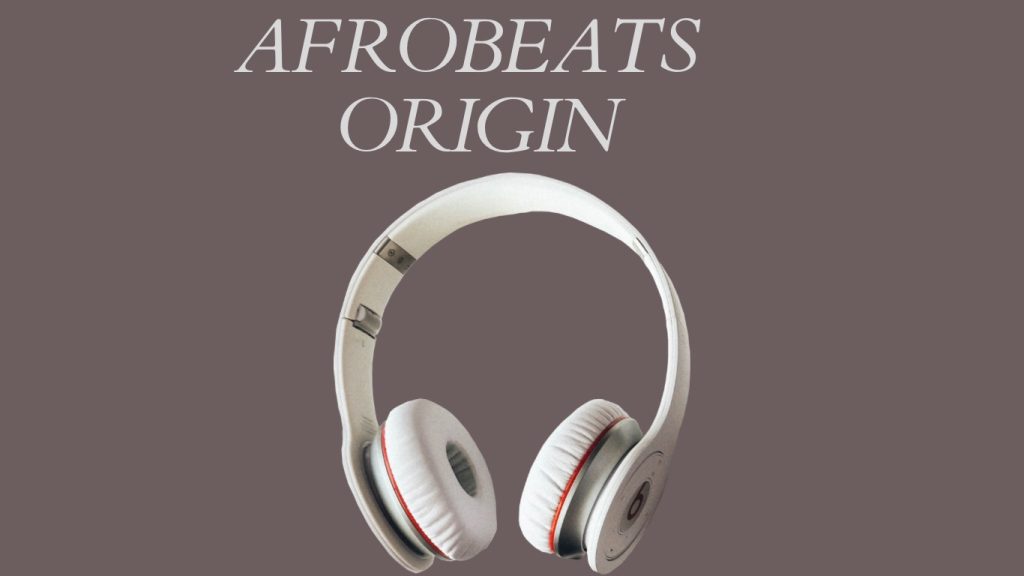Afrobeats is a popular music genre that originated in Nigeria in the 21st century. It is a fusion of various musical styles, including traditional Nigerian music, highlife, juju music, fuji, and hip-hop, with elements of Western music such as R&B, pop, and dancehall.
While its roots can be traced back to the 1970s and 1980s Afrobeat genre pioneered by Nigerian musician Fela Kuti, afrobeats as we know it today emerged in the early 2000s. Nigerian artists such as D’banj, Don Jazzy, and P-Square played a significant role in popularizing the genre both within Nigeria and internationally.
The term “afrobeats” itself was coined by British DJ and producer Abrantee in the mid-2000s to distinguish the contemporary Nigerian sound from Fela Kuti’s Afrobeat. Afrobeats quickly gained popularity across Africa and gradually spread to other parts of the world, particularly the United Kingdom and the United States.
The genre’s infectious rhythms, catchy melodies, and energetic dance moves have contributed to its global success. Today, afrobeats artists such as Wizkid, Davido, Burna Boy, Tiwa Savage, and others continue to dominate the charts and collaborate with international artists, further expanding the genre’s reach and influence.
Afropop Vs Afrobeats
Afropop and afrobeats are two related but distinct genres of African popular music.
Afropop is a broad term that encompasses various styles of popular music originating from Africa. It emerged in the 1960s and 1970s as African countries gained independence and musicians began blending traditional African sounds with Western influences such as jazz, funk, and rock. Afropop typically features rich vocal harmonies, vibrant percussion, and a mix of traditional and modern instruments.
Afrobeats, on the other hand, is a more recent subgenre of Afropop that developed in Nigeria in the early 2000s. It is characterized by its fusion of traditional African rhythms, particularly those found in Nigerian music genres like highlife, juju, and fuji, with elements of Western music such as hip-hop, R&B, and dancehall. Afrobeats tends to have a more upbeat and dance-oriented sound, incorporating electronic production and catchy melodies.
While both genres draw on African musical traditions, afrobeats has gained significant international popularity in recent years, with artists like Wizkid, Davido, Burna Boy, and Tiwa Savage achieving global success and collaborating with international artists. Afropop, on the other hand, remains a broader category that encompasses various styles and subgenres from different African regions.
It’s worth noting that the boundaries between afrobeats and afropop can sometimes be blurry, and the terms are sometimes used interchangeably. Additionally, there are other regional variations and subgenres within the broader Afropop umbrella, such as South African Afro-house, Congolese soukous, and Ghanaian highlife.
Afro fusion is a music genre that blends elements of African music with other genres from around the world. It is a fusion of African rhythms, melodies, and instruments with styles such as hip-hop, R&B, reggae, dancehall, pop, jazz, and electronic music.
The term “afro fusion” is relatively broad and encompasses a wide range of musical expressions and artists who incorporate African influences into their music. The genre has gained popularity in recent years as a result of the global interest in African music and the rise of cross-cultural collaborations.
Afro fusion artists often incorporate traditional African instruments like the djembe, talking drum, kora, and kalimba, as well as African vocal styles and languages, into their music. They may also sample or reinterpret traditional African songs or rhythms to create a contemporary sound.
The genre allows for experimentation and creativity, as artists blend different musical elements to create a unique and diverse sound. It has provided a platform for African artists to reach a broader global audience and has also led to collaborations between African artists and musicians from other parts of the world.
Some notable afro fusion artists include Burna Boy, Wizkid, Tiwa Savage, Mr Eazi, Niniola, and Yemi Alade, among others. These artists have successfully fused African music with various global genres, contributing to the popularity and recognition of afro fusion on the international music scene.
Afro Fusion & Afro Dance all
Afro fusion is a music genre that blends elements of African music with other genres from around the world. It is a fusion of African rhythms, melodies, and instruments with styles such as hip-hop, R&B, reggae, dancehall, pop, jazz, and electronic music.
The term “afro fusion” is relatively broad and encompasses a wide range of musical expressions and artists who incorporate African influences into their music. The genre has gained popularity in recent years as a result of the global interest in African music and the rise of cross-cultural collaborations.
Afro fusion artists often incorporate traditional African instruments like the djembe, talking drum, kora, and kalimba, as well as African vocal styles and languages, into their music. They may also sample or reinterpret traditional African songs or rhythms to create a contemporary sound.
The genre allows for experimentation and creativity, as artists blend different musical elements to create a unique and diverse sound. It has provided a platform for African artists to reach a broader global audience and has also led to collaborations between African artists and musicians from other parts of the world.
Some notable afro fusion artists include Burna Boy, Wizkid, Tiwa Savage, Mr Eazi, Niniola, and Yemi Alade, among others. These artists have successfully fused African music with various global genres, contributing to the popularity and recognition of afro fusion on the international music scene.
Afro Dancehall, also known as Afro Dancehall or Afro-Dancehall, is a music genre that blends elements of traditional African music, dancehall, and reggae. It emerged as a subgenre of dancehall in the late 2000s and has gained significant popularity in African and Caribbean countries.
Afro Dancehall combines the infectious rhythms and beats of dancehall music with African influences such as highlife, Afrobeat, and traditional drum patterns. The genre often incorporates African languages and vocal styles, providing a unique fusion of cultural elements.
Lyrically, Afro Dancehall covers a wide range of topics, including love, partying, social issues, and personal experiences. The songs often feature catchy melodies, energetic beats, and a focus on danceable rhythms, encouraging listeners to move and dance.
Artists such as Patoranking, Stonebwoy, Shatta Wale, and Timaya are known for their contributions to Afro Dancehall. They have played a significant role in popularizing the genre, both within their respective countries and on the international stage.
Afro Dancehall has also influenced other music genres, and its infectious rhythms and danceable beats have found their way into mainstream pop and urban music. It continues to evolve and adapt as artists experiment with different sounds and incorporate elements from various musical styles.
Overall, Afro Dancehall represents the blending of African and Caribbean musical traditions, resulting in a vibrant and energetic genre that resonates with audiences worldwide.



